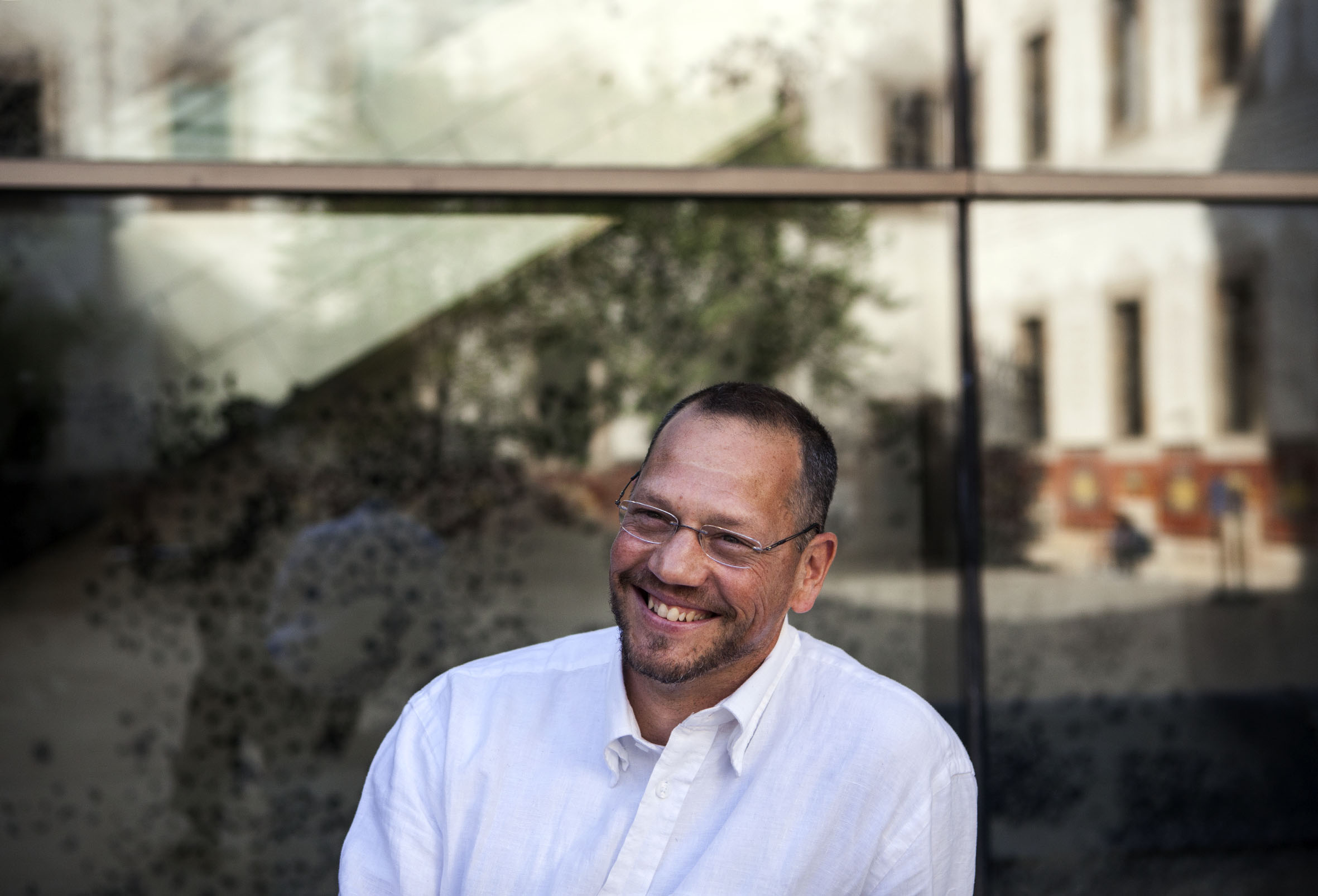Doug Lemov ,
Doug Lemov began his career as a school teacher in a poor neighbourhood of Boston. Although he adored his profession and took it very seriously, he was not always able to get the results in the classroom that he was looking for. He then began to ask himself how to be a good teacher and change the fortune of the students, who appeared to be doomed to failure because of their social background. From those beginnings until today, where he manages Uncommon Schools, a network of schools that work with children at risk of social exclusion in the United States, achieving great academic successes, he has not ceased to analyse, study, reflect... Teach Like a Champion, his study into successful teachers in urban areas, has become a manual for many teachers in his country. On 30 April, he took part in Debats d'Educació, invited by the UOC and the Fundació Jaume Bofill.
Doug Lemov began his career as a school teacher in a poor neighbourhood of Boston. Although he adored his profession and took it very seriously, he was not always able to get the results in the classroom that he was looking for. He then began to ask himself how to be a good teacher and change the fortune of the students, who appeared to be doomed to failure because of their social background. From those beginnings until today, where he manages Uncommon Schools, a network of schools that work with children at risk of social exclusion in the United States, achieving great academic successes, he has not ceased to analyse, study, reflect... Teach Like a Champion, his study into successful teachers in urban areas, has become a manual for many teachers in his country. On 30 April, he took part in Debats d'Educació, invited by the UOC and the Fundació Jaume Bofill.
I was never very good at school. One time, I had an English teacher called Mrs Cosby, who I liked a lot. She got my attention in a way I've never forgotten. She threw me out of class and told me I should have more respect for myself as I was very intelligent but I didn't try and did too many dumb things. That left its mark because she was my favourite teacher: I still recall many of her lessons.
Really, there were a number of educators who inspired me. I recall in my first teaching post, I thought highly of all the ones who had played an important part in my life, and I wanted to become something similar for my students. Over time, I realized that wanting it wasn't enough. Behind them, behind their behaviour, was a lot a hard work and, above all, technique and years of experience.
They're the ones with the skill to guess what their students need, recognize when they're learning and know how to convey a passion for it to them.
I don't know anything about percentages, but I can say that vocation is not something that can easily be trained. Thinking that anyone can do any job is a mistake. Without a vocation, you don't get to be a good teacher.
They are made because even though vocation is very important, there are many other factors to be learned and, thanks to this, the number of good educators can be increased. We need thousands and thousands of them.
There are 10,000 challenges, and many of them are completely unpredictable. There are students who work hard and still don't get good results, others want to be left alone but you can't leave them sitting in the corner all year, others put you to the test and answer back to see how far they can push you, etc. The problem is that many teachers don't know how to negotiate with them because they haven't learned how. They start giving classes and suddenly find themselves in situations for which they're not trained. In the USA, 50% of teachers working in schools in tough neighbourhoods end up leaving the profession because it's too hard.
They should teach them that the problems they are going to find should not be relevant when carrying on teaching. When a teacher goes into a classroom, they have to be ready to face any adversity. In the USA there's a huge amount of theory about what they should know, but then putting it into practice is not so easy. For me, being a good teacher depends on how you answer a question, for example, or how high your expectations of your students are.
No. What there is, is different behaviour when it comes to learning. As individuals, we change according to the subject, and students are exactly the same. My work as an educator consists of knowing how to change and adapt to each one in a way that allows most of them to achieve the greatest success possible.
It's extremely important. A teacher's work is very solitary. Teaching should be a team sport, because when one goes into a classroom and closes the door, they're completely alone with 30 students. To be successful, it's essential to be able to talk to other adults to find out how they act, what they do and what they say in their classes. Good teams make better individuals.
That's a question that sadly many governments don't ask themselves. The best thing they could do for us is not to tell us what we should do, but how we could improve. These are two completely different questions. Any administration should have the obligation of trying to let people do their job better, but that's not the message teachers usually get.
Press contact
-
Editorial department

